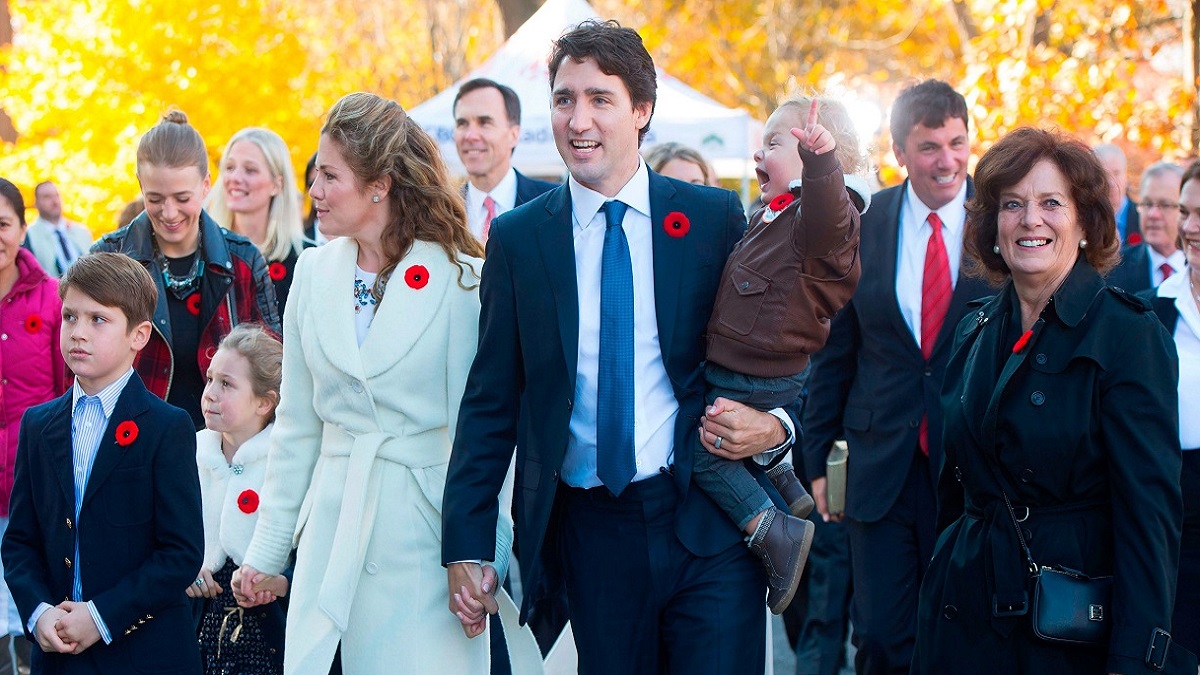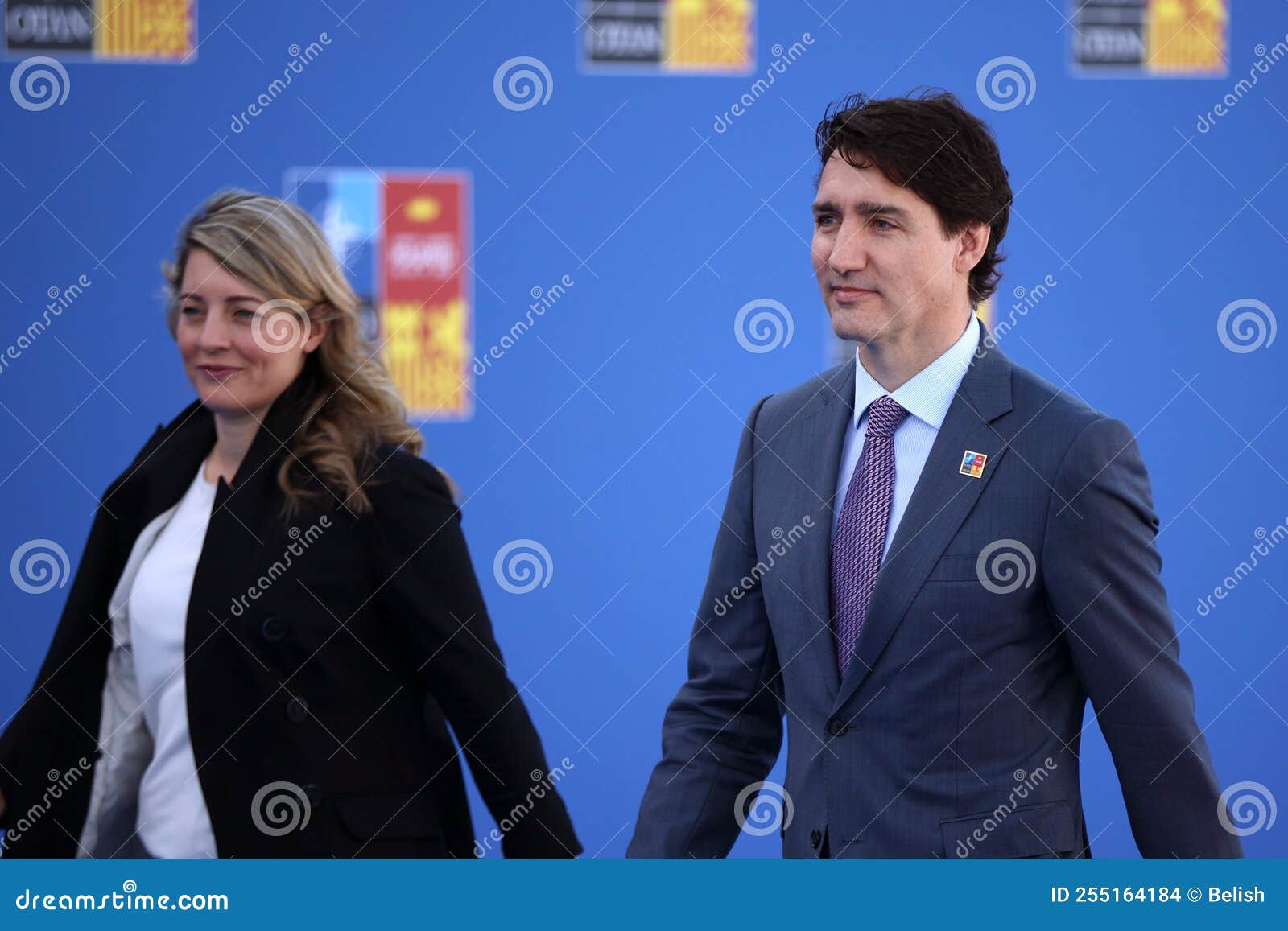The alleged affair between Mélanie Joly and Justin Trudeau has sparked widespread discussions across Canada and beyond. The topic has become a focal point of media attention, with many seeking answers about its veracity and implications. As a high-profile political couple, any rumors involving them are bound to generate significant public interest.
While the term "affair" often evokes scandalous narratives, it is essential to approach the subject with a balanced perspective. This article aims to dissect the claims, analyze the context, and provide readers with a comprehensive understanding of the situation without resorting to sensationalism.
By delving into the backgrounds of both Mélanie Joly and Justin Trudeau, examining the origins of the rumors, and exploring their potential impact on Canadian politics, we aim to present an informed and factual analysis. Let us begin by understanding who these individuals are and their roles in shaping contemporary Canadian society.
Read also:Sister Wives Garrison Exploring The Lives Of Reality Tvs Most Famous Polygamist Family
Biography of Mélanie Joly
Early Life and Career
Mélanie Joly, born on February 13, 1977, in Montreal, Quebec, is a prominent Canadian politician and public figure. Her journey into politics began after a successful career in the private sector, where she worked in strategic consulting and media relations. Joly's early life was marked by her passion for public service and her commitment to fostering innovation in Canada's digital economy.
Below is a brief overview of her personal and professional details:
| Full Name | Mélanie Joly |
|---|---|
| Birthdate | February 13, 1977 |
| Place of Birth | Montreal, Quebec, Canada |
| Profession | Politician, Former Minister of Economic Development and Official Languages |
| Political Affiliation | Liberal Party of Canada |
Political Achievements
Mélanie Joly's political career has been nothing short of remarkable. She was first elected to the House of Commons in 2015, representing the riding of Ahuntsic-Cartierville. Her tenure has seen her serve in various ministerial roles, including Minister of Canadian Heritage, Minister of Tourism, and Minister of Economic Development and Official Languages.
Her work in promoting Canadian culture, supporting small businesses, and advancing bilingualism has earned her respect across political lines. Despite her achievements, the allegations of an affair with Justin Trudeau have overshadowed her contributions in recent months.
Who is Justin Trudeau?
Prime Minister of Canada
Justin Pierre James Trudeau, born on December 25, 1971, in Ottawa, Ontario, is the 23rd and current Prime Minister of Canada. As the son of the legendary Pierre Elliott Trudeau, Justin Trudeau entered politics with a legacy to uphold. He was elected as the leader of the Liberal Party of Canada in 2013 and became Prime Minister in 2015.
Trudeau's leadership has been characterized by progressive policies, including climate action, gender equality, and multiculturalism. However, his personal life has occasionally been scrutinized, with the alleged affair being one of the more recent controversies.
Read also:Puff Diddy Baby Oil Picture A Detailed Exploration Of The Iconic Moment
Family and Personal Life
Justin Trudeau is married to Sophie Grégoire Trudeau, a former television host and activist. Together, they have three children. The couple's relationship has been a source of admiration for many Canadians, making the rumors of an affair particularly jarring for supporters and detractors alike.
Origins of the Mélanie Joly and Justin Trudeau Affair
The rumors surrounding the alleged affair between Mélanie Joly and Justin Trudeau began to surface in early 2023. While no concrete evidence has been presented, media outlets have speculated based on circumstantial evidence and anonymous sources. Below are some of the key points often cited in these discussions:
- Close working relationship between Joly and Trudeau within the Liberal Party.
- Public appearances together at various events, leading to speculation about their interactions.
- Unverified claims from unnamed insiders suggesting a personal connection beyond professional boundaries.
It is crucial to approach these claims with skepticism, as media sensationalism can often amplify unsubstantiated stories.
Fact-Checking the Allegations
In an era of misinformation, verifying the veracity of such allegations is paramount. Reputable news organizations, including the CBC and The Globe and Mail, have not published definitive evidence supporting the affair claims. Instead, they have focused on analyzing the broader implications of such rumors on Canadian politics.
According to a survey conducted by Angus Reid Institute in 2023, 67% of Canadians believe that political leaders should maintain a strict separation between their personal and professional lives. This sentiment underscores the importance of transparency and accountability in addressing such allegations.
Impact on Canadian Politics
Public Perception
The alleged affair has sparked heated debates among Canadians about the role of personal lives in politics. Some argue that leaders' private lives are irrelevant unless they directly impact their ability to govern effectively. Others contend that transparency is essential for maintaining public trust.
A study published in the Canadian Journal of Political Science highlights the growing trend of voters prioritizing ethical leadership over policy platforms. This shift in voter preferences could influence future elections and the way politicians navigate personal controversies.
Political Consequences
For Mélanie Joly, the allegations could affect her standing within the Liberal Party and her future political aspirations. Similarly, Justin Trudeau's reputation as a leader committed to integrity and transparency may be scrutinized more closely. The situation underscores the delicate balance between personal privacy and public accountability in modern politics.
Media Coverage and Responsibility
The media plays a pivotal role in shaping public opinion, especially in high-profile cases like this. Responsible journalism demands that reporters verify sources and present balanced perspectives. Unfortunately, the 24-hour news cycle often prioritizes sensationalism over substance, leading to the spread of misinformation.
According to a report by Reuters Institute for the Study of Journalism, 78% of Canadians believe that media outlets should exercise greater restraint when covering personal scandals involving public figures. This statistic highlights the need for journalists to adhere to ethical standards and avoid contributing to the "tabloidization" of political discourse.
Legal and Ethical Considerations
From a legal standpoint, unsubstantiated allegations can have serious consequences. Defamation laws exist to protect individuals from false accusations that damage their reputation. Both Mélanie Joly and Justin Trudeau have the right to seek legal recourse if they believe their rights have been violated.
Ethically, the situation raises questions about the boundaries of public scrutiny. While voters have a right to know about their leaders' conduct, there must be limits to protect personal privacy. Striking this balance is a challenge that democratic societies must continually address.
Public Reaction and Social Media
Social media platforms have become a battleground for discussions about the alleged affair. Twitter, Facebook, and Instagram are filled with opinions ranging from outrage to disbelief. While these platforms allow for diverse voices to be heard, they also contribute to the spread of misinformation.
A survey by Statista reveals that 55% of Canadians rely on social media as their primary source of news. This reliance underscores the importance of digital literacy and critical thinking in navigating online discussions about sensitive topics.
Conclusion
The alleged affair between Mélanie Joly and Justin Trudeau remains a subject of intense debate. While no concrete evidence has emerged to substantiate the claims, the situation highlights broader issues about personal privacy, media responsibility, and public accountability in politics. As Canadians continue to grapple with these questions, it is essential to approach the topic with a balanced and informed perspective.
We invite readers to share their thoughts in the comments section below. For more insights into Canadian politics and leadership, explore our other articles on this website. Together, let us foster a culture of respectful dialogue and critical thinking in our democratic society.
Table of Contents

